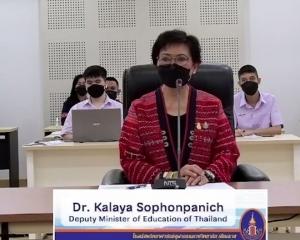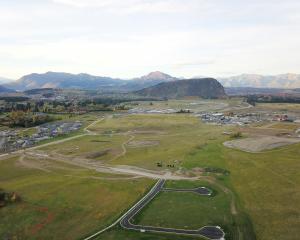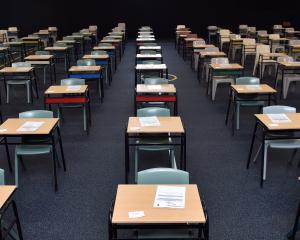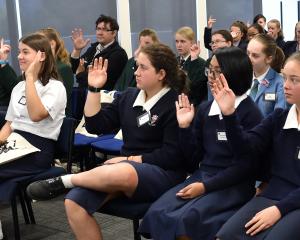Otago schools are paying "hundreds of thousands of dollars" to attend workshops in the region aimed at preparing teachers for National Standards.
Principals in the region expressed concern that in order to implement the National Standards in their schools, their boards of trustees were being asked to fund the attendance of support leaders (principals and curriculum leaders) at a one-day workshop.
Green Island School principal Steve Hayward said he wanted to send his 10 teachers to the workshop.
"It will cost $80 a head to register them for the workshop, plus about $2800 for relief teachers to replace them for the day. That's $3600."
Given there are about 125 primary and intermediate schools paying between $500 and $3600 to attend a National Standards workshop, it was going to cost the region's schools hundreds of thousands of dollars, he said.
"My question is, if the Government is providing $26 million to help deliver targeted teacher training, why are we having to pay thousands of dollars to send our teachers to this workshop?"Mr Hayward said if the Government was serious about lifting achievement in reading and writing, it would be better to spend $1 million on reading and writing for up to 400 pupils.
"Imagine what you could do with $26 million. Reading helps pupils become independent learners."
Tapanui School principal Anne Gover wanted to send two staff to her nearest workshop in Gore, and after paying for registration, travel, and relief teachers, it was going to cost the school $845.68.
"There was no indication at the end of 2009, when the National Standards arrived in our schools, that there wouldbe a cost for training.
"Our school budget, which is already stretched because the operations grant funding has not been increased sufficiently to meet all our basic payments, is now being asked to somehow find funding for this professional development."
Alexandra School principal Adele Gott said the school could afford to send only three people to the nearest workshop, in Cromwell.
"Those going will be myself, the deputy principal and the associate principal. Two of us teach, so we will have to find relief teachers while we are away. It's the relief teachers that cost so much."
Arrowtown School principal Robin Harris was sending four teachers to the workshop.
The nearest venue was Cromwell, but he had chosen to send them to the Lumsden venue, because it was more convenient.
He estimated it would cost the school about $600 to attend the workshop, and was concerned teachers might be expected to attend others in the future.
"It hurts to be spending money on things like this. We've got better things to be spending money on. The Government should be footing the bill on this one."
Education Minister Anne Tolley said $26 million in funding had been reprioritised for professional development of teachers and principals, and would be used to support them in implementing the National Standards.
The funding would not cover the $80 registration fee (which covered catering expenses), travel expenses, or the cost of hiring relief teachers.
Mrs Tolley said principals and lead teachers could choose to attend the workshops which were available in all regions.
They would be given support in leading staff meetings in their schools as they start to work with the standards.
Online learning modules would also be available, she said.
Mrs Gover said she, like many educators in the region, had strong reservations about National Standards and how they would impact on the delivery of the new curriculum.
"Our 5-year-olds come in with a variety of different experiences and learning needs, and to label some of them as failures because they have not reached a required level by the age of 6 does not sit well with me, either as a principal or as a grandparent of two 4-year-olds who will be starting school during 2010 in different parts of New Zealand.
"Surely, if it is good enough to allow the kura kaupapa schools to trial the National Standards, the same principle should be applied to all mainstream schools."
However, Mrs Tolley said Te Marautanga o Aotearoa was not a direct translation of the English curriculum, so the Maori-medium standards have had to be developed from scratch.
"The National Standards for English-medium schools were largely based on the literacy progressions and the numeracy framework, but there are no equivalents for Maori-medium, so developing the standards has taken longer.
"Accordingly, changes may have to be made. Consultation with Maori-medium schools, parents, families and whanau will continue throughout the year."
It was expected final standards would be confirmed for Maori-medium schools next year, she said.
• Southland primary school principals have announced they will boycott the workshops because of the cost of attending.











